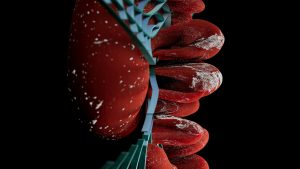Personalized Nutrition: Tailoring Meals to Your DNA
Imagine being able to eat a diet specifically tailored to your individual DNA. Sounds like a dream, right? Well, with the rise of personalized nutrition, this dream is quickly becoming a reality. Gone are the days of following generic diets and hoping for the best. With advancements in technology and research, we now have the ability to understand our bodies at a molecular level and make informed decisions about the food we put into it. Let’s dive into the world of personalized nutrition and how it’s changing the way we eat.
The Science Behind Personalized Nutrition
Personalized nutrition is based on the concept that each individual has unique genetic makeup and therefore, has unique nutrition needs. The study of nutrigenomics, which examines the effects of food on gene expression, has shown that our genetics play a significant role in how our bodies process and react to different foods. For example, a genetic variation in an enzyme called lactase can make someone more or less tolerant to dairy products. Similarly, another genetic variation can impact how efficiently our bodies metabolize carbohydrates.
DNA Testing for Personalized Nutrition
The process of personalized nutrition begins with DNA testing. This involves taking a sample of your DNA, typically from a saliva or blood sample, and analyzing it for any genetic variations related to nutrition. Companies such as 23andMe and AncestryDNA offer affordable at-home DNA testing kits that provide detailed information about your genetics, including any variations related to nutrition.
The results of these tests can reveal a wealth of information about your body’s response to different types of food. From this, a personalized nutrition plan can be created.
How Personalized Nutrition Works
After receiving your DNA test results, a personalized nutrition plan can be created based on your specific genetic variations. This plan takes into account not just your genetic makeup, but also factors such as age, lifestyle, and overall health status.
With personalized nutrition, it’s not just about what you eat, but also when you eat. Our body’s circadian rhythm, or internal clock, plays a crucial role in how we process food. Some genetic variations can make certain individuals more sensitive to the timing of their meals. This means that following a personalized nutrition plan can not only optimize your diet for your unique genetic profile but also for your daily schedule.
The Benefits of Personalized Nutrition
The most significant benefit of personalized nutrition is the potential for optimizing health and preventing disease. By personalizing our diets, we can consume the nutrients our bodies need, while avoiding foods that may be harmful to us. In doing so, we can reduce the risk of developing chronic health conditions such as heart disease, diabetes, and obesity.
Personalized nutrition can also improve our overall well-being. Some studies have shown that individuals who followed a personalized nutrition plan experienced an increase in energy levels, improved mood, and better sleep. This is because their bodies were getting the specific nutrients they needed to function optimally.
Personalized Nutrition: The Future of Eating
As technology continues to advance and our understanding of genetics expands, personalized nutrition will only become more widespread and accessible. Researchers are currently exploring how this approach can be used to treat and manage diseases such as cancer and Alzheimer’s.
While personalized nutrition is still in its early stages, the potential benefits cannot be ignored. It offers a more individualized and sustainable approach to nutrition that goes beyond the one-size-fits-all diets we’ve grown accustomed to. With personalized nutrition, we have the power to take control of our health and make informed decisions about the food we eat. So, the next time someone says you are what you eat, you can respond with, “I am what my DNA says I am.”









